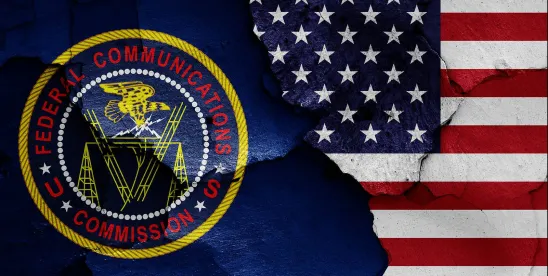I remember not so long ago when everyone knew the rules.
Carriers could not block calls.
Intermediary carriers, in particular, would never fathom intruding upon a transmission.
The link ups were designed to assure ease of access across networks. The only goal was to assure people and companies could communicate across the patchwork telecom prairies.
For years now things have been changing. The carriers have been given outlandish powers to block calls and texts and they have acted outlandishly.
That will change soon. R.E.A.C.H. will be petitioning the FCC to BAN carrier call blocking of TCPA-compliant calls and texts. (Be ready, its coming.)
But before that day comes, we have this day.
A day when a federal court has decided an intermediary carrier– not an originating carrier, much less the CPaaS provided or the caller, the freakin intermediary carrier– can be held liable for the content of calls that traverse its network.
For longtime telecom denizens and wonks this ruling is nearly unthinkable. Its like receiving a lethal dose of neutrinos– its impossible.
Yet here we are.
In AG v. SmartBiz Case Number: 22-23945 (Doc. 110)(S.D. Fl Sept. 19, 2024) a court the state of Florida was entitled to judgment against an intermediary carrier for violations of the TSR committed by others that transmitted traffic over its network.
Let me start by saying, I cannot imagine why SmartBiz was singled out here. I am confidant– no inside information here, but confidant regardless–that other intermediary carriers were allowing the transmission of the same calls alongside SmartBiz. I am certain the calls were being delivered by terminating carriers–who have at least as much responsibility. I am also certain the calls were being originated by gateways who have even more responsibility. Not to mention the CPaaS provider that allowed access to the network and the caller– you know the actual bad guy–none of whom were targeted by this suit.
Just SmartBiz.
Odd, but ok.
The claims here are that SmartBiz received a bunch of ITG notifications that traffic on its network was illegal. Since it received those notifications and failed to stop traffic it was found to have provided “substantial assistance” to the telemarketers who wee allegedly making the illegal calls.
In the abstract I am ok with this. It makes sense. But couple of problems:
- There was no showing (that I can see) that the specific campaigns that are the subject of the complaint (which I cannot identify) were the subject of the previous notices;
- There was no showing (that I can see) that the specific callers that are the subject of the complaint (which I cannot identify) were the subject of the previous notices.
So imagine you’re an uber driver, but like a quantum uber driver that can be in 10,000 places at once.
Today you did 15,000 rides. Tomorrow you do 20,000.
One a day someone tells you– hey, you took a criminal in your car today, here’s his drivers license.
Now, perhaps you can be blamed if you allow that criminal back into your car in the future– although even that seems weird because just because the guy did something wrong in the past doesn’t mean this time he is comitting a crime. But still, I get it.
But just because you drove a bad guy in the past does that mean you have to know when a future bad guy gets in your car and prevent it?
That seems to be the holding against SmartBiz. Because it had been warned repeatedly in the past about ilegal traffic on its network it somehow was responsible to know and prevent all illegal traffic in the future.
I may be overreading this–and I really hope I am–but that seems to be what the decision says.
Regardless, pretty clear that everyone n the chain of an illegal call can be held liable for that call where actual notice of the calls being illegal exists, at least under the TSR.
Interestingly, the court reached a different conclusion under the TCPA, and the reason why is not very intuitive.
The Court found the AG had to prove SmartBiz’ policies were insufficient under the robocall mitigation database to justify suit under the TCPA, even though it somehow found SmartBiz was the “initiator” of the call. Now I think this is a special wrinkle because the AG was a government actor and not a harmed party–there is no such requirement for private suit.
Still the decision by the court to deny summary judgment on the TCPA claim REALLY demonstrates the importance of carriers maintaining great policies to protect themselves– the Court is sending the issue to the jury; i.e. whether SmartBiz did enough to protect its network from unwanted calls.
Pulling this altogether, carriers are going to be under even more pressure to stop unwanted calls. Instead of just one or two points of failure for your calls–say at the registration or gateway point–now every single jump in the chain may end up being a slammed door. Each carrier will decide for itself what traffic it will and will not carry. The patchwork will be devastating. And even less traffic will get through.
All of this needs to stop. We need to have a telecom system where calls can get through.
Or maybe not. Maybe we let the telecom network die as we did the USPS and replace it with the OTT equivalents of FedEx and Amazon.
I mean, is that the plan? Does everyone already know it but me? Are our phones no longer really phones at all but just app dispensers?




 />i
/>i

